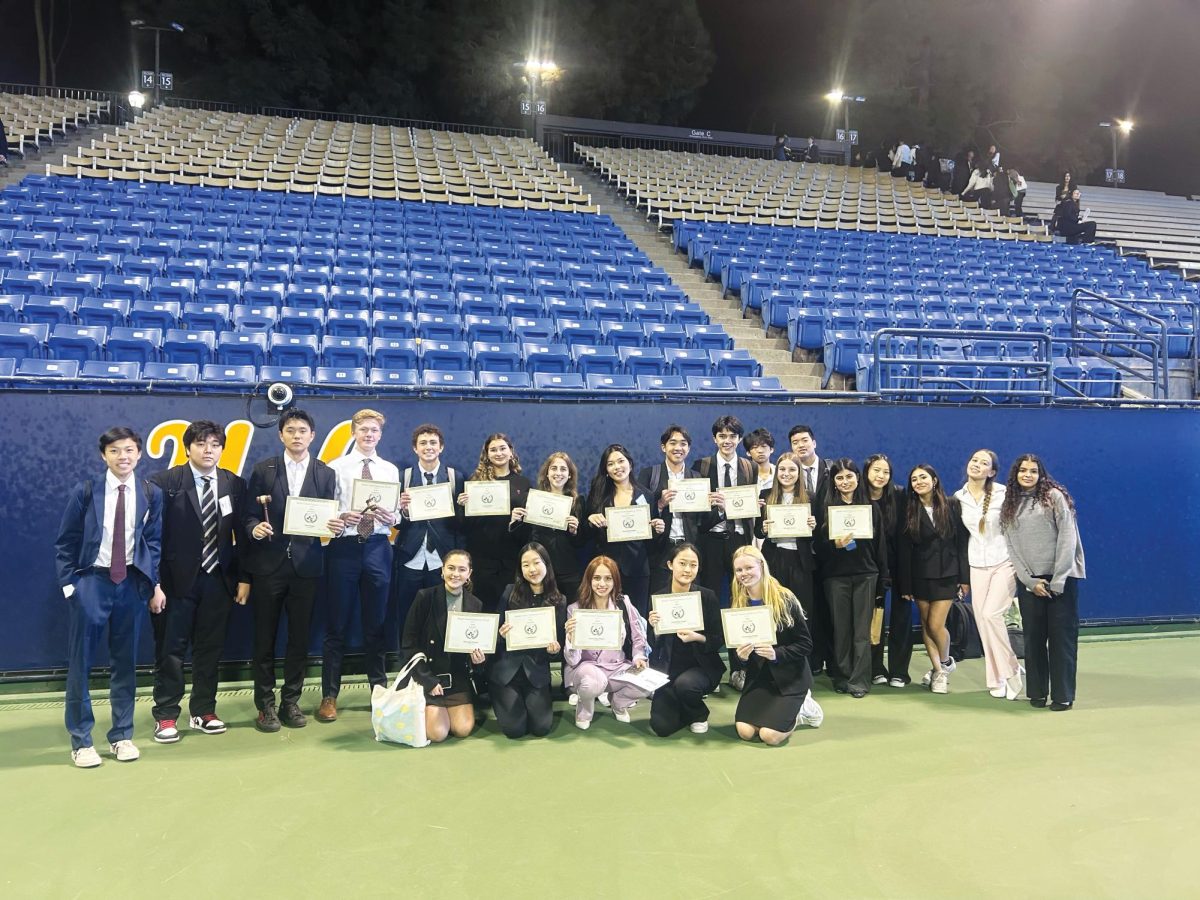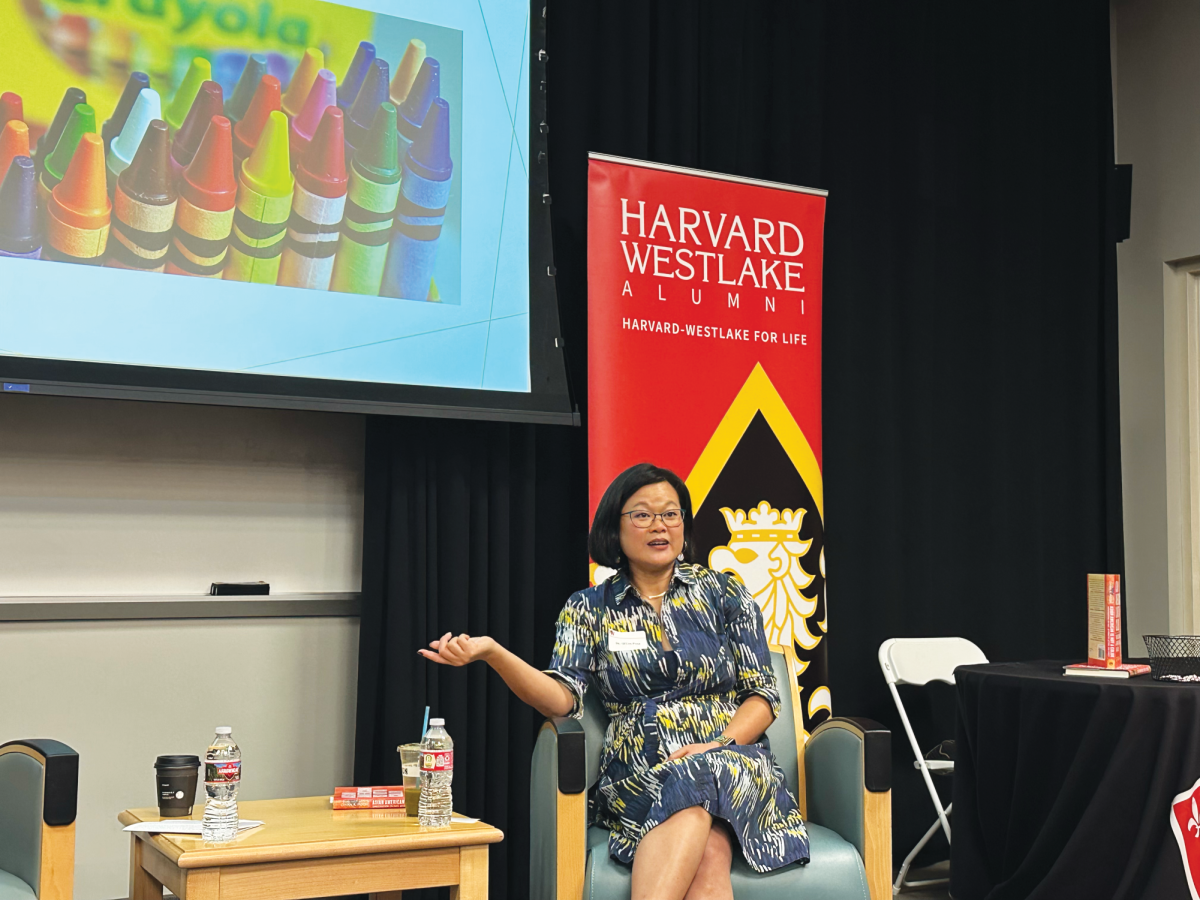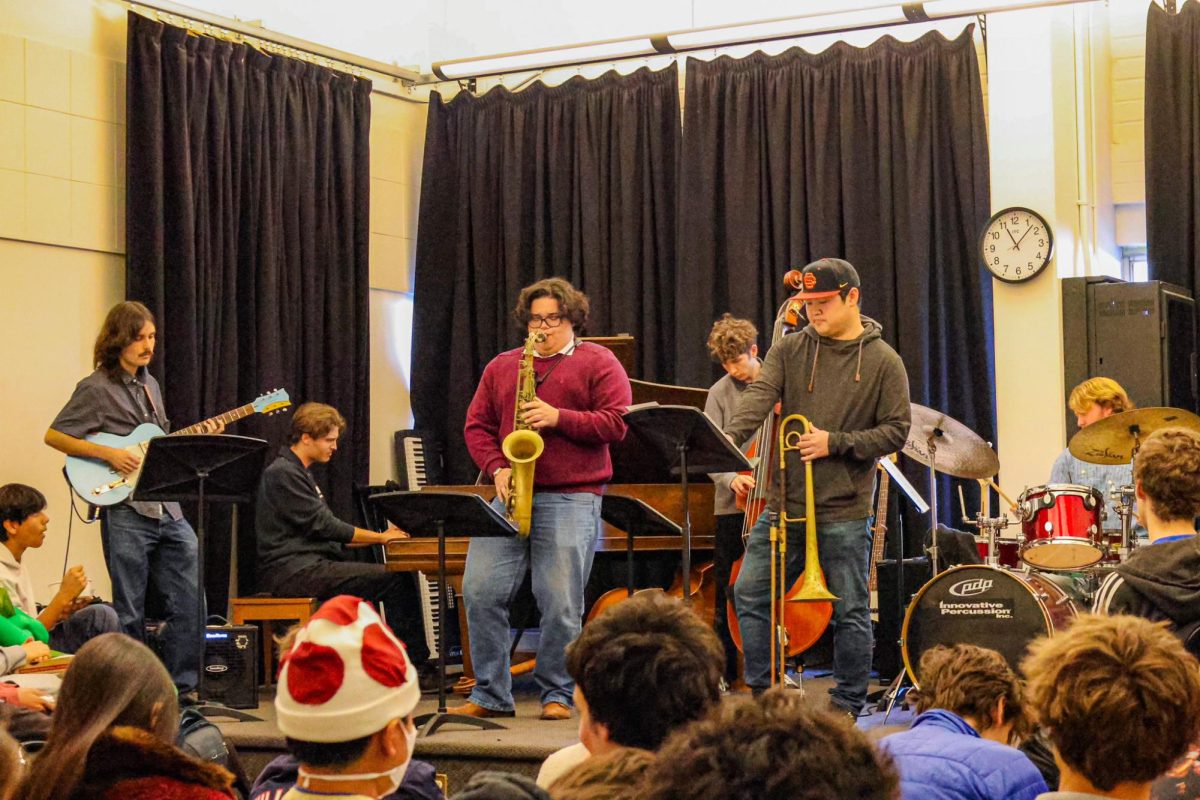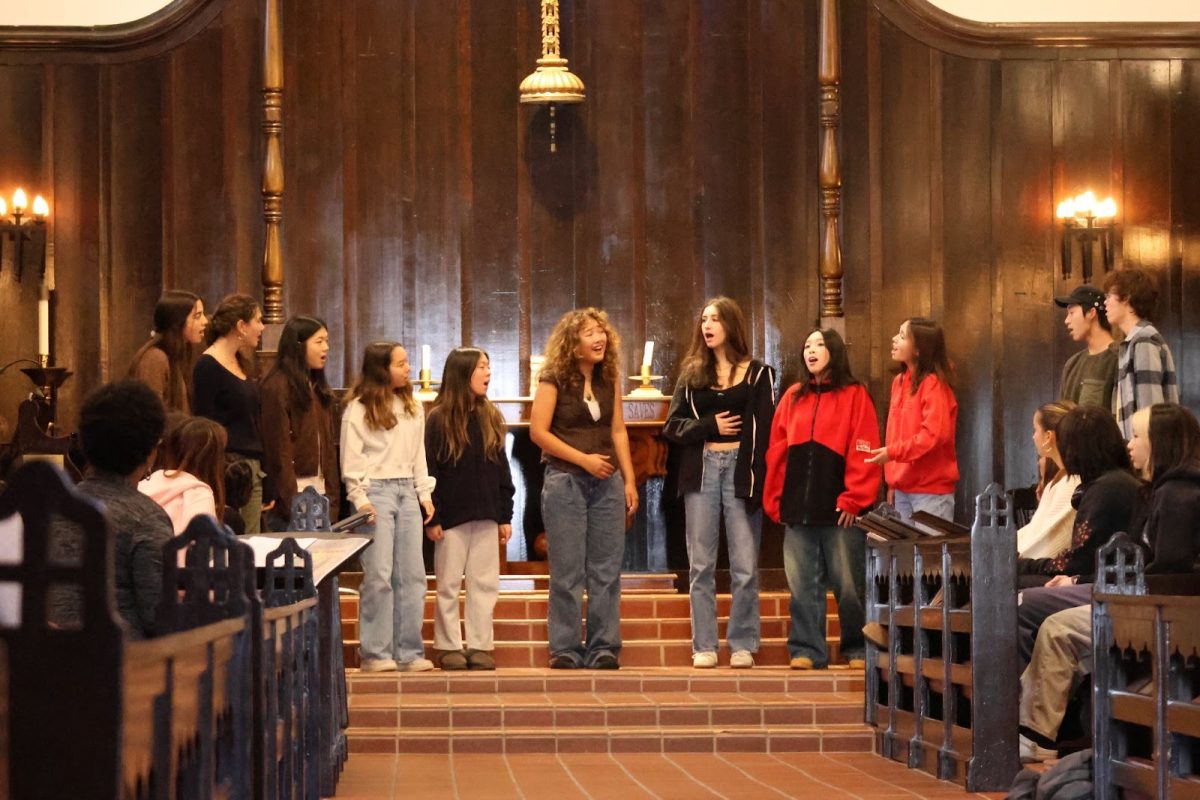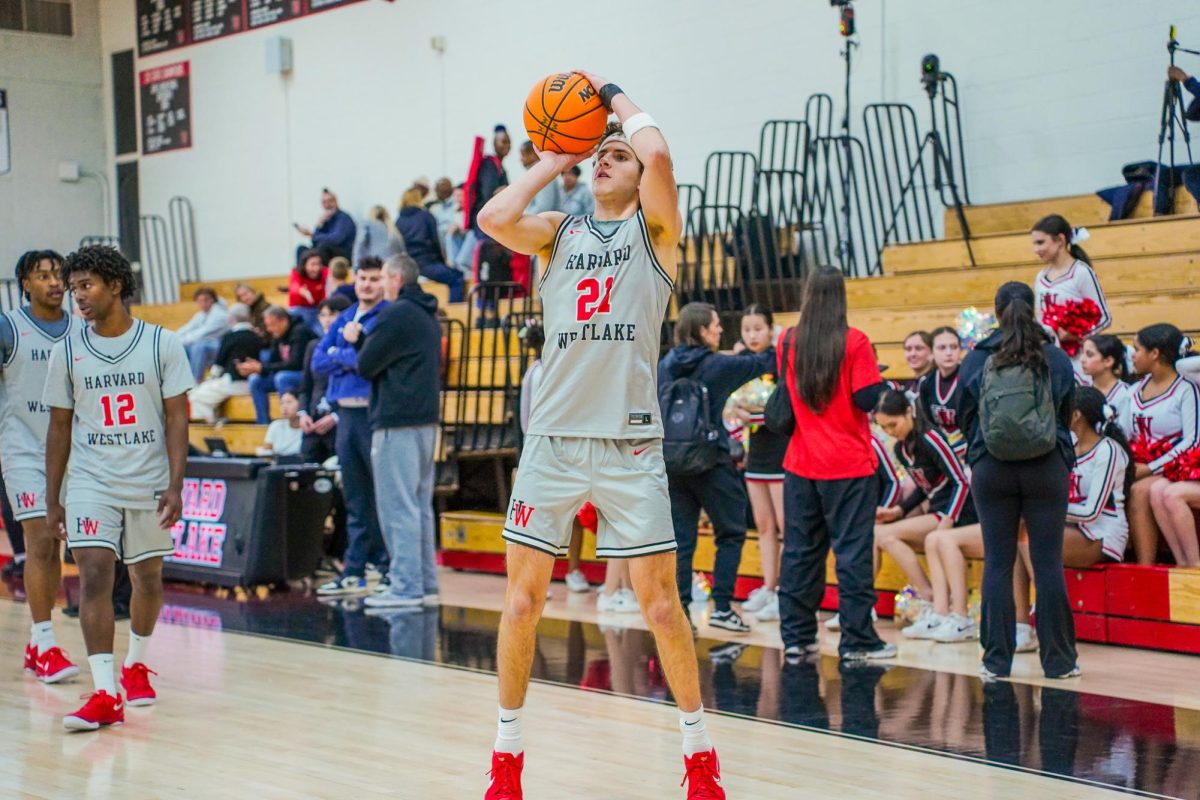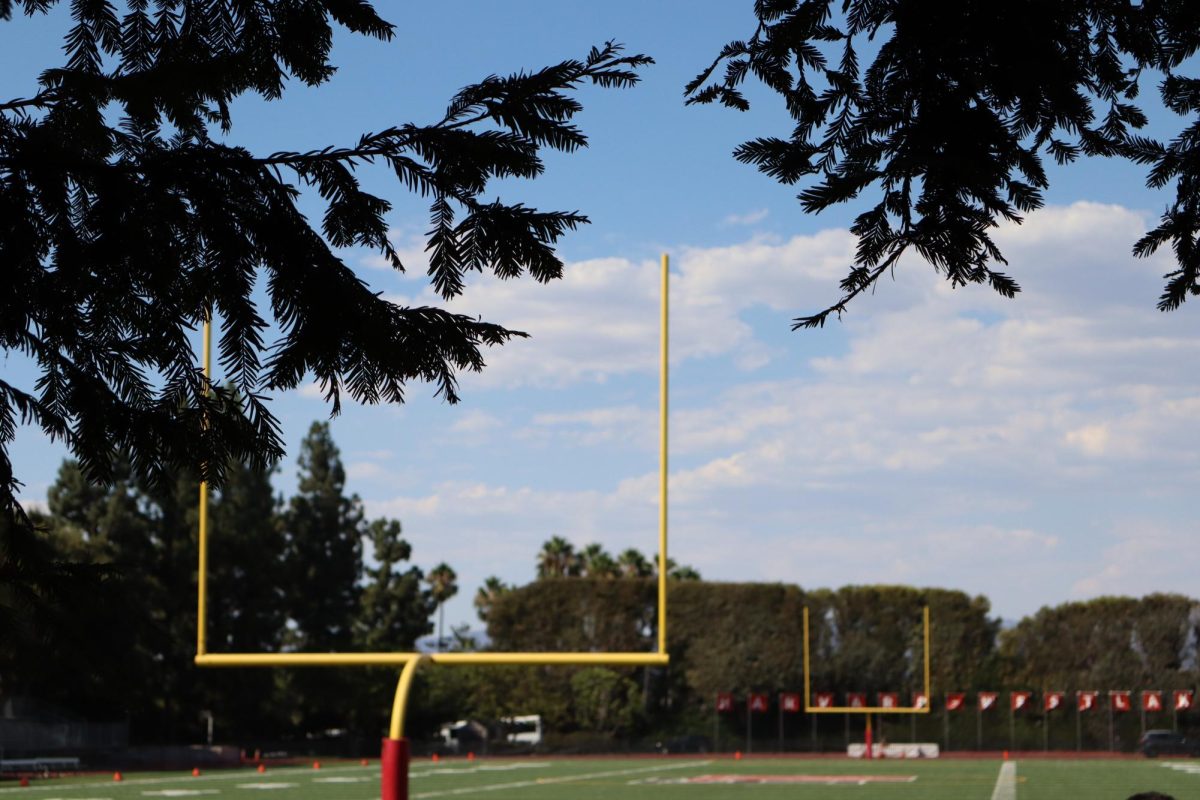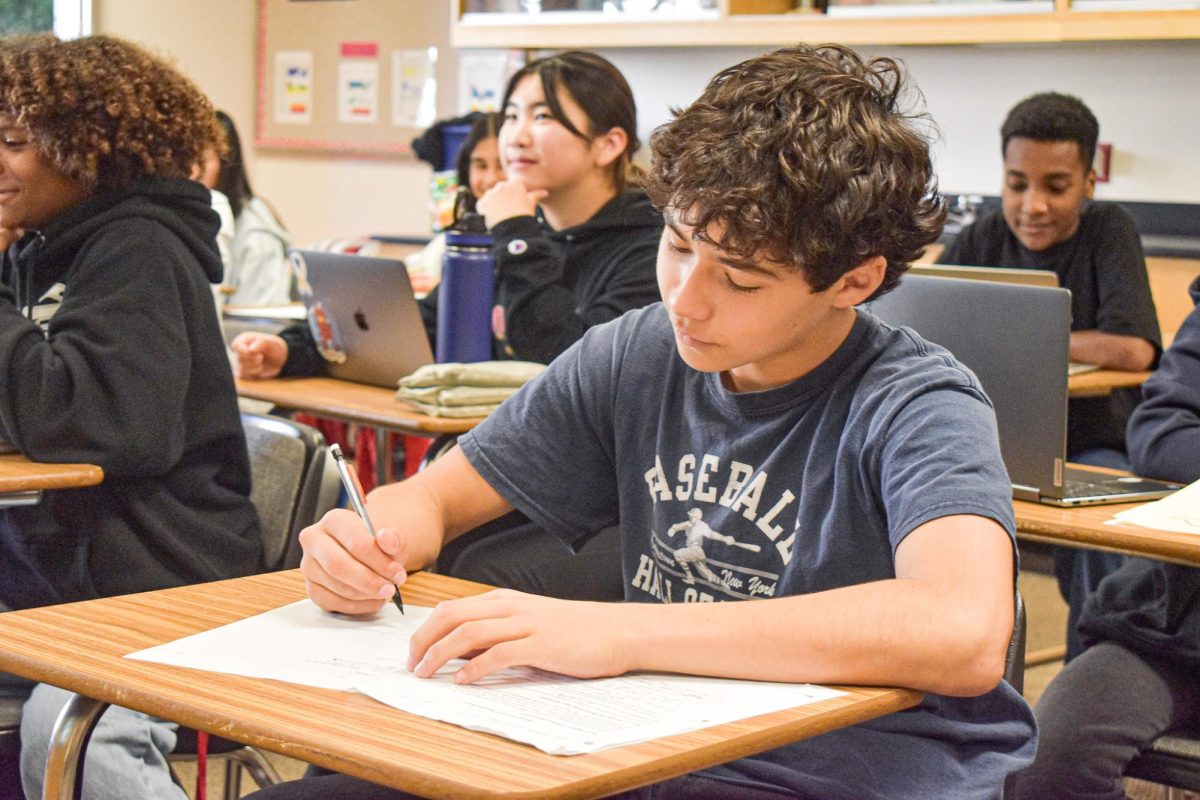The deans will enact a new admissions policy starting with the class of 2018 where Single-Choice Early Action applications to Harvard, Yale, Princeton and Stanford will be treated as Early Decision applications.
Under this policy, the deans will not allow a student who is accepted to one of the four schools to submit applications to other colleges in the Regular Decision pool. Upper School Deans Department Head Beth Slattery said that this policy will hopefully decrease competition.
“An [unhooked] kid who gets into Stanford early is probably a really strong candidate at every place, so if they’re in the regular pools, that kid is likely to have other places also think they’re awesome,” Slattery said. “So them not being in those pools regular does help.”
Head of School Jeanne Huybrechts said the deans conducted thorough research before making this decision.
“I don’t think it was widely known that the deans were looking into this issue, but they’ve been looking into it for many years,” Huybrechts said. “I know that, while it will be enacted next year, the deans will continue to look at matriculation numbers to make sure that this doesn’t adversely affect anyone and is instead a benefit to the students.”
Slattery said that the deans are willing to make exceptions on the basis of financial aid, though the four schools have “the best financial aid.”
Slattery said the deans feel that most families have the resources to make an informed decision about what their top choice is earlier on in the process.
“We believe that we have some evidence that [accepted students continuing to apply in the regular pool] actually has negatively impacted other kids, and our goal is really to do what’s in the best interest of all kids,” Slattery said.
Upper School Dean Chris Jones said that in 2014, 2015 and 2016, 14 students who were accepted to one of the four schools early continued to apply to other schools.
“It may only be that in every year maybe we get a sum total of one or two more kids into those schools because those spots opened up,” Slattery said. “But so what? That’s one or two more kids that didn’t have those options before.”
Melanie Hirsch ’18 said she supports this new early action policy.
“If schools get a bunch of applicants and acceptances from Harvard-Westlake students who never show any interest and never attend, then they start to believe, and sometimes rightfully so, that kids from the school continue to apply just to show off,” she said.
Others believe that it is unfair to limit students’ options when applying to college.
“I believe that the school should not have the authority nor the right to limit students in such a radical way,” Paul Leclerc ’18 said.
Slattery, however, thinks that the policy will be the best thing for the “collective good” of the student body.
“Making a kid go to Harvard after they get into Harvard early doesn’t really feel like a punishment,” she said. “I understand that people may want to have those choices, but as a school we get to set the policy of what we are willing to support, and we are just not willing to support any longer the kids who are getting three or four of those choices.”

